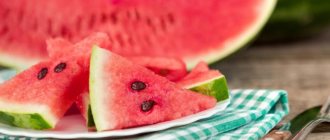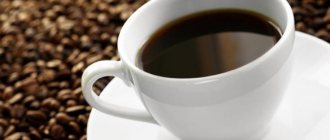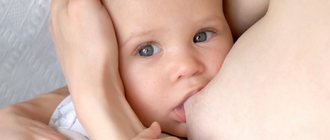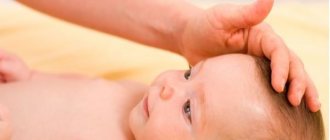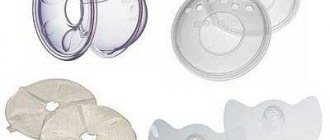Alcohol in non-alcoholic beer
If you have already tried non-alcoholic beer while breastfeeding, you probably noticed a slight intoxication after drinking a few sips.
It has nothing to do with psychology - “nulevka” does indeed contain alcohol in small quantities, but it still contains alcohol. Non-alcoholic beer is not at all safe for a breastfeeding baby, since the product contains up to 1.5% alcohol. This drink should be consumed during breastfeeding with the same moderation and caution as regular beer.
Reasons for milk flow after drinking beer
If a young mother feels a surge of milk after drinking beer, this may be due to the following reasons:
- Time to feed the baby if the baby has a clear feeding schedule
- Self-hypnosis due to the expectation of a positive effect
- Drinking plenty of water or drinking hot water or taking a hot shower/sauna
- Positive emotions during breastfeeding or from eating a “forbidden” product after a long period of restriction in favorite foods
- Neck and shoulder massage and other pleasant tactile sensations
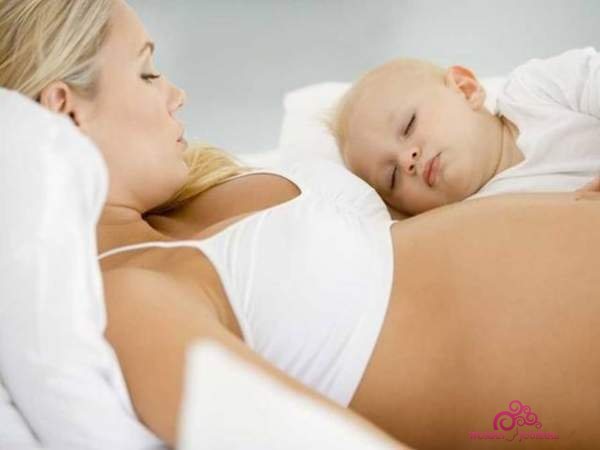
The effect of the hormone oxytocin - it is produced when the baby actively suckles at the breast
A small amount of beer causes a slight increase in blood alcohol, causing the blood vessels, muscles and milk ducts to relax, causing breast milk to flow. An increase in the concentration of alcohol in the blood causes the opposite effect - the milk ducts are compressed, and milk flow is much worse. In this case, alcohol enters the child’s body, causing intoxication. Algol negatively affects all systems of the baby’s body, especially the baby’s brain and immature liver. Under the influence of alcohol, babies fall asleep without receiving the required amount of milk, and therefore vitamins and nutrients. In mothers who regularly drink alcoholic beverages, including beer, the child is regularly malnourished, which affects his weight and overall development.
In the first month
Drinking non-alcoholic beer in the first month is certainly prohibited. Primarily due to the fact that it still contains a small percentage of alcohol, and the baby’s body is not able to break it down. This can cause allergies or even poisoning. In addition, the drink is made from numerous components, and multi-component products in the first weeks after birth can harm the fragile body of the newborn. His gastrointestinal tract is learning to recognize new substances, so it is difficult for him to cope with the load.
Drinking beer while breastfeeding
Of course, it is best for a nursing mother to stop drinking alcohol.
But sometimes a woman has a strong desire to drink a bottle of intoxicating drink. In this case, it is best to drink bottled non-alcoholic beer; canned ones contain harmful preservatives. However, you should not abuse even non-alcoholic beer; you can drink it infrequently and in small quantities.
Feeding a baby by a mother who is intoxicated can lead to poisoning of the child's body.
In addition, abuse of foam often leads to the formation of the following pathologies in the baby:
- Sleep problems
- Underweight
- Hypoglycemia
- Apathy
- Lethargy
- Delayed motor development
- Liver diseases
- Gastrointestinal diseases
- Cardiopalmus
- Respiratory depression
Beer is a completely unsuitable drink for a nursing mother; it is better for her to treat herself to something healthy and tasty.
Does it contain alcohol
Non-alcoholic beer, contrary to its name, still contains alcohol. The right to be called non-alcoholic is given by a significantly reduced amount of alcohol compared to the usual version - 0.3-1.5%.
According to the list of ingredients, non-alcoholic beer is completely identical to regular beer, the amount of alcohol is reduced by artificial methods:
- by evaporation;
- with membrane dialysis;
- by reducing the intensity of fermentation.
Recently, a completely non-alcoholic drink that does not contain ethyl alcohol has begun to appear on the shelves. It is produced using the latest technology, without the addition of alcohols at the initial stage of fermentation.
We suggest that you familiarize yourself with Alcohol for pancreatitis of the pancreas: what alcohol can you drink for pancreatitis
If you want to minimize the risk for your baby, it is better to drink beer exclusively in its non-alcoholic form and not too often.
How is it made?
The production of “nulevka” at breweries begins in the same way as the production of regular beer.
In some factories, a plant base of hops and malt is brewed, and then, as a result of fermentation, the raw material is obtained, from which ethanol is then removed in several stages. In other industries, the semi-finished product is made from a mixture of powders, into which a small volume of alcohol is then added “for taste” in the dosage allowed according to the specifications.
Since suppression of fermentation processes at the final stage of production of “nulevka” greatly worsens the taste of the product, to improve this parameter, flavors and emulsifiers are added to the raw materials in production.
Can nursing mothers have non-alcoholic beer?
There is no consensus among doctors on this issue. Some doctors, and among them the famous pediatrician Komarovsky, are convinced that when breastfeeding, a small amount of a high-quality soft drink will not harm either the mother or the child. The main thing is to monitor the naturalness, composition and choose a drink with a short shelf life in a glass jar. However, even he emphasizes that non-alcoholic beer during breastfeeding is an experiment on a child, and the fewer such experiments there are, the better.
Other doctors are more categorical and argue that a nursing mother should not drink any beer, as it will negatively affect the baby’s health. They are confident that drinking beer during lactation can significantly disrupt the normal physical and mental development of the child.
We invite you to familiarize yourself with the effect of alcoholic drinks on blood sugar – do they increase or decrease the levels?
Ultimately, whether a nursing mother can drink non-alcoholic beer or not, the mother herself has to decide, taking responsibility for the possible consequences for the baby. It is important to remember that even when drinking beer, you can reduce these consequences to a minimum or eliminate them completely, the main thing is to follow proven recommendations.
Does beer pass into breast milk?
Some mothers allow themselves to drink an intoxicating drink while breastfeeding; they do not consider it harmful. There are advisers who recommend that a nursing woman drink a couple of glasses of foam, supposedly after that the baby will become calm and the mother will be able to relax. They mistakenly believe that a small dose of alcohol will not negatively affect the baby’s health. But it has been scientifically proven that everything that a nursing mother consumes passes to the baby through breast milk.
If safety measures are not taken, alcohol will definitely reach the baby’s body during lactation.
Among the components of the intoxicating drink is ethanol, which will enter the mother's milk half an hour after consumption; if alcohol is drunk with a meal, then after an hour. If a woman feeds her baby immediately after drinking alcohol, the dangerous toxin will enter the baby’s body.
Useful composition
In addition to B vitamins, the foamy drink contains a lot of other elements important for our body:
- silicon;
- potassium;
- phosphorus;
- selenium;
- complex carbohydrates;
- vegetable fibers;
- antioxidants.
But such a useful composition will only be found in natural brewed beer. Products made from powder with the addition of alcohol and flavorings do not contain the listed elements. They are also not found in non-alcoholic beer drinks, which are created using a special technological process.
Benefits and harms
Why do many nursing mothers have an unbearable desire to drink this drink? “Nulevka,” like its alcoholic prototype, has a pleasant bready smell, telling our body that the product contains yeast that can enrich its cells with important B vitamins. The latter are necessary for normalizing metabolism, the process of producing blood and regulating its composition, as well as improve vascular tone and accelerate cell regeneration.
Our body, through food desires, gives us a signal about the deficiency of certain elements. If a woman wants non-alcoholic beer while breastfeeding, her cells may not have enough vitamins B1 and B2. You can also get them from other products: for example, from black bread, bran, red meat, liver and greens.
Drinking non-alcoholic beer during lactation
So, can you drink non-alcoholic beer while breastfeeding? There is no direct ban on the use of “nulevka” - this drink is considered conditionally safe, but do not forget about the presence of harmful elements and alcohol in its composition.
If a mother has weighed all the pros and cons and decided to drink non-alcoholic beer, she should take precautions so that her momentary pleasure does not turn into harm to the health of the child during breastfeeding:
- It is better to try non-alcoholic beer for the first time during breastfeeding after 3 months. By this time, both the baby’s intestines and his liver will be strong enough to accept and process harmful elements that can come from breast milk.
- Before drinking non-alcoholic beer, the mother should feed the baby - then by the next feeding, subject to the recommended dose, the alcohol will be completely removed from your blood and milk.
- The recommended dose of non-alcoholic beer for breastfeeding is 500 ml, that is, a mother can drink only one glass of foamy drink in one evening. The alcohol from the blood and milk after she drinks will be eliminated after about 1.5-2 hours. The rate at which alcohol dissipates directly depends on the weight of the new mother and on the amount of food that the woman ate while drinking the foamy drink.
- If a nursing mother plans to drink more than the recommended amount, it is better to pump first so that the hungry baby can eat until the alcohol from the woman’s blood and milk completely disappears. Do not forget about the presence of harmful chemicals in “nulevka”; after consuming it, you should carefully monitor the baby’s skin and monitor the nature of his stool for two days. If a child reacts negatively to traces of these elements in breast milk, it is better to stop experiments and during feasts drink traditional non-alcoholic drinks that are allowed during breastfeeding.
We invite you to familiarize yourself with Extra and Highly Purified Luxury Food Alcohol. Which alcohol is better, alpha lux or extra: differences according to GOST
https://www.youtube.com/watch?v=IJKYLsJtQZg
Non-alcoholic beer is not only not completely devoid of alcohol, but also contains a lot of harmful elements to which a baby may be allergic. During the period of breastfeeding, it is better for women to abstain from such drinks completely or consume them in reasonable moderation and following precautions when feeding a child.
Beer while breastfeeding: pros and cons
Read also: How to restore lactation - 10 main recommendations
Having heard such “valuable” advice, new mothers rejoice at the opportunity to “kill two birds with one stone” at the same time: treat themselves to the taste of beer forgotten during pregnancy and influence the flow of milk. This zealous desire was fueled by the observations of some scientists who identified a relationship between the consumption of beer drinks and increased lactation. These scientists believe that lactation is increased due to the content of barley and yeast polysaccharide in this low-alcohol drink.
But medical workers are rushing to debunk the myth about the benefits of beer during breastfeeding. And there are quite logical justifications for this:
- When drinking beer drinks, the breasts increase not from the influx of milk, but from the retention of salts and fluid in the tissues of the mammary glands. The amount of milk remains at the same level.
- Beer, like any other alcoholic drink, easily enters the child's body through breast milk. This is fraught not only with colic and bloating, but also with serious poisoning of the child.
- Even a small amount of alcohol is completely eliminated from a woman’s body after 6-7 hours. When breastfeeding, this is quite a long time.
- Beer does not contain any unique vitamins and microelements that are not found in other products that are more suitable for feeding a breastfeeding woman.
